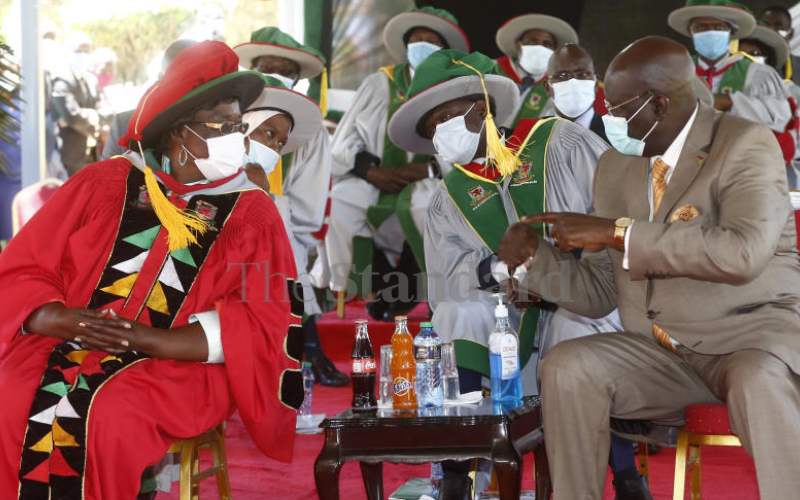×
The Standard e-Paper
Fearless, Trusted News

Education Cabinet Secretary George Magoha (left) chats with Egerton University Vice-Chancellor Prof Rose Mwonya, July 2020. [Kipsang Joseph, Standard]
University vice-chancellors have rejected the role of the Public Service Commission (PSC) in the recruitment of senior staff in public institutions of higher learning.